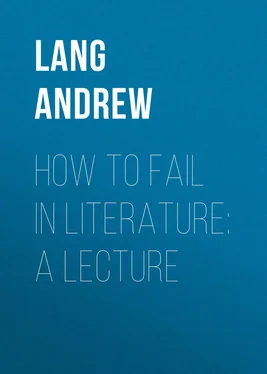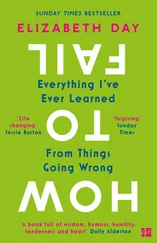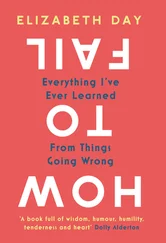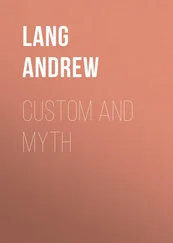The most ambitious may accept, without distrust, the following advice as to How to fail in Literature. The advice is offered by a mere critic, and it is an axiom of the Arts that the critics “are the fellows who have failed,” or have not succeeded. The persons who really can paint, or play, or compose seldom tell us how it is done, still less do they review the performances of their contemporaries. That invidious task they leave to the unsuccessful novelists. The instruction, the advice are offered by the persons who cannot achieve performance. It is thus that all things work together in favour of failure, which, indeed, may well appear so easy that special instruction, however competent, is a luxury rather than a necessary. But when we look round on the vast multitude of writers who, to all seeming, deliberately aim at failure, who take every precaution in favour of failure that untutored inexperience can suggest, it becomes plain that education in ill-success, is really a popular want. In the following remarks some broad general principles, making disaster almost inevitable, will first be offered, and then special methods of failing in all special departments of letters will be ungrudgingly communicated. It is not enough to attain failure, we should deserve it. The writer, by way of insuring complete confidence, would modestly mention that he has had ample opportunities of study in this branch of knowledge. While sifting for five or six years the volunteered contributions to a popular periodical, he has received and considered some hundredweights of manuscript. In all these myriad contributions he has not found thirty pieces which rose even to the ordinary dead level of magazine work. He has thus enjoyed unrivalled chances of examining such modes of missing success as spontaneously occur to the human intellect, to the unaided ingenuity of men, women, and children. 1 1 As the writer has ceased to sift, editorially, the contributions of the age, he does hope that authors will not instantly send him their MSS. But if they do, after this warning, they will take the most direct and certain road to the waste paper basket. No MSS. will be returned, even when accompanied by postage stamps.
He who would fail in literature cannot begin too early to neglect his education, and to adopt every opportunity of not observing life and character. None of us is so young but that he may make himself perfect in writing an illegible hand. This method, I am bound to say, is too frequently overlooked. Most manuscripts by ardent literary volunteers are fairly legible. On the other hand there are novelists, especially ladies, who not only write a hand wholly declining to let itself be deciphered, but who fill up the margins with interpolations, who write between the lines, and who cover the page with scratches running this way and that, intended to direct the attention to after-thoughts inserted here and there in corners and on the backs of sheets. To pin in scraps of closely written paper and backs of envelopes adds to the security for failure, and produces a rich anger in the publisher’s reader or the editor.
The cultivation of a bad handwriting is an elementary precaution, often overlooked. Few need to be warned against having their MSS. typewritten, this gives them a chance of being read with ease and interest, and this must be neglected by all who have really set their hearts on failure. In the higher matters of education it is well to be as ignorant as possible. No knowledge comes amiss to the true man of letters, so they who court disaster should know as little as may be.
Mr. Stevenson has told the attentive world how, in boyhood, he practised himself in studying and imitating the styles of famous authors of every age. He who aims at failure must never think of style, and should sedulously abstain from reading Shakespeare, Bacon, Hooker, Walton, Gibbon, and other English and foreign classics. He can hardly be too reckless of grammar, and should always place adverbs and other words between “to” and the infinitive, thus: “Hubert was determined to energetically and on all possible occasions, oppose any attempt to entangle him with such.” Here, it will be noticed, “such” is used as a pronoun, a delightful flower of speech not to be disregarded by authors who would fail. But some one may reply that several of our most popular novelists revel in the kind of grammar which I am recommending. This is undeniable, but certain people manage to succeed in spite of their own earnest endeavours and startling demerits. There is no royal road to failure. There is no rule without its exception, and it may be urged that the works of the gentlemen and ladies who “break Priscian’s head” – as they would say themselves – may be successful, but are not literature. Now it is about literature that we are speaking.
Конец ознакомительного фрагмента.
Текст предоставлен ООО «ЛитРес».
Прочитайте эту книгу целиком, купив полную легальную версию на ЛитРес.
Безопасно оплатить книгу можно банковской картой Visa, MasterCard, Maestro, со счета мобильного телефона, с платежного терминала, в салоне МТС или Связной, через PayPal, WebMoney, Яндекс.Деньги, QIWI Кошелек, бонусными картами или другим удобным Вам способом.
As the writer has ceased to sift, editorially, the contributions of the age, he does hope that authors will not instantly send him their MSS. But if they do, after this warning, they will take the most direct and certain road to the waste paper basket. No MSS. will be returned, even when accompanied by postage stamps.












